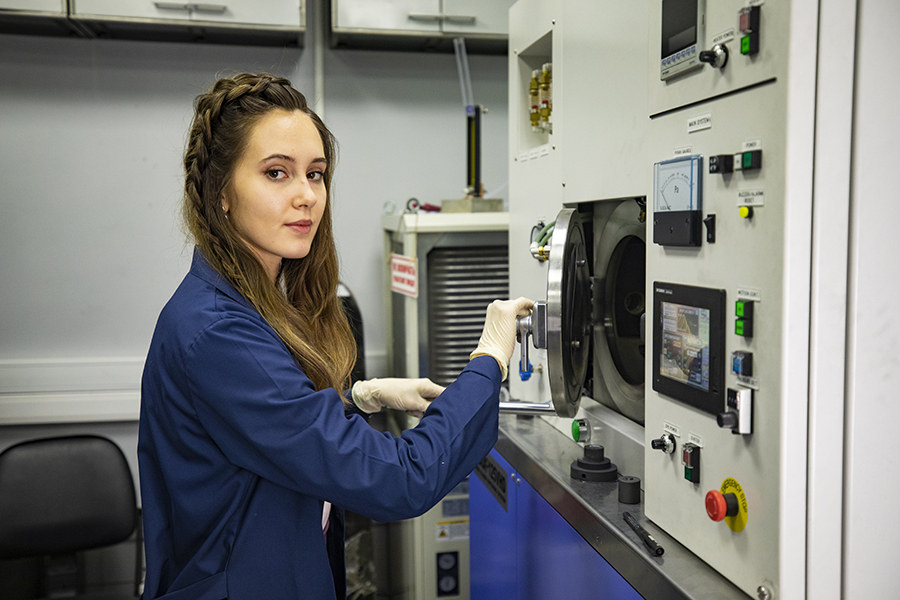A list of projects submitted for funding under the program "UMNIK" has been approved at the end of 2018, which includes eight innovation projects of MEPhI youth. One of them belongs to a master's student at the Department of physical problems of materials science, INPhE MEPhI Polina Krokhicheva. It’s theme is "Development of methods to obtain innovative composite based on bioactive highly porous ceramics, reinforced by magnesium phase, for biodegradable implant by powder metallurgy methods".

The essence of the project is to create an innovative material for biodegradable implant used for the treatment of various degrees of fractures in traumatology and surgery. The creation of a new material will increase the speed of bone union, increase the time of bone tissue regeneration, contributing to the formation of healthy callus, replacing the implant with "alive" bone tissue.
There are many advantages of this implant:
- no additional surgery operation costs;
- reducing the risk of infection of a patient;
- elimination of body’s allergic reactions to the metal material of an implant;
- reduction of the patient's postoperative recovery time.
Biodegradable implants are still not used in Russia. The reason is that the implant material does not meet the specified requirements: biocompatibility, strength, corrosion resistance and biodegradability. With all the positive characteristics of implants made of metal, ceramics and polymers, there are a number of disadvantages: high modulus of elasticity of metal implants is one of the causes of bone resorption; polymer implants during biological aging emit toxic and carcinogenic substances that have a negative impact on the human body; the high fragility of ceramic implants does not allow them to be used in particularly loaded parts of the bone.

"There is a real need to create a material that offers an alternative solution to the above mentioned problems. The laboratory where I work offers a model for creation of a composite based on a bioactive ceramic matrix reinforced with magnesium particles obtained by powder metallurgy methods. Magnesium is a fully biodegradable and non-toxic element, its strength is closest to the strength of the cortical bone layer. Magnesium is an important factor of bone metabolism, formation of bone tissue and its mineralization," said Polina Krokhicheva.





